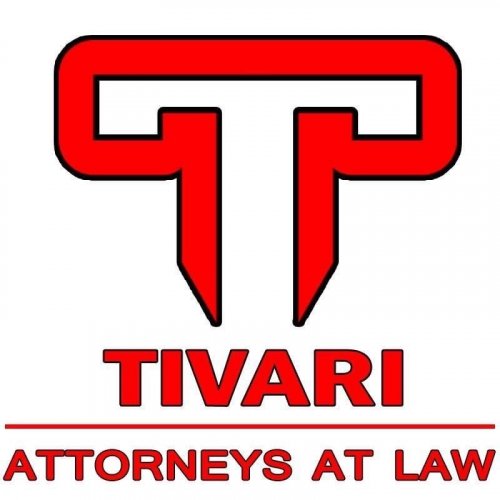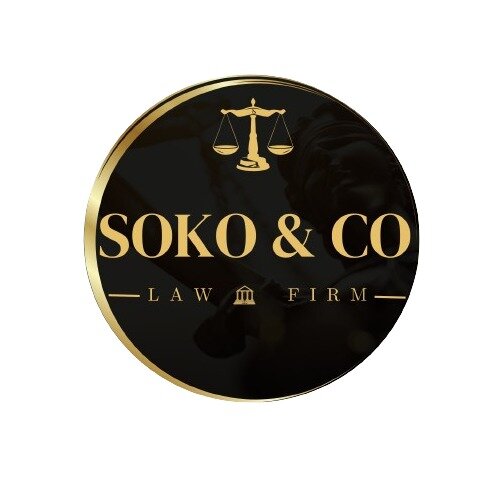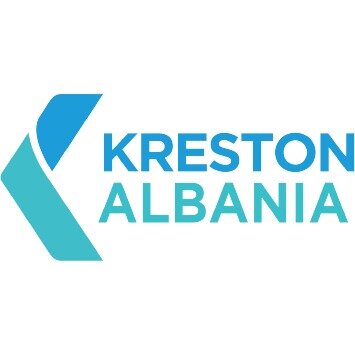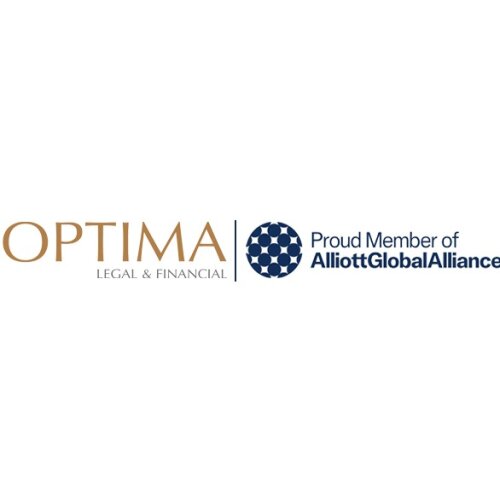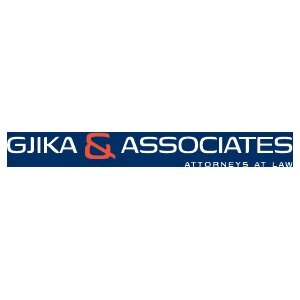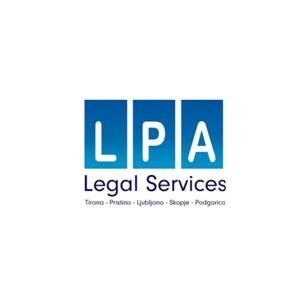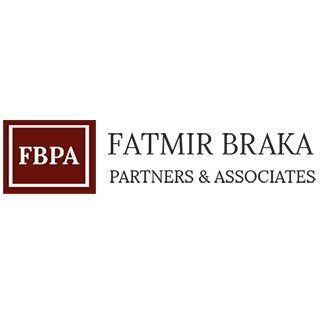Best Restructuring & Insolvency Lawyers in Albania
Share your needs with us, get contacted by law firms.
Free. Takes 2 min.
Or refine your search by selecting a city:
List of the best lawyers in Albania
About Restructuring & Insolvency Law in Albania
Restructuring and insolvency law in Albania provides a legal framework for businesses and individuals that are unable to meet their financial obligations. This area of law regulates the processes through which a company or individual can either reorganize their financial affairs to remain operational or undergo a structured dissolution of assets to pay off creditors. The procedures include mechanisms like debt restructuring, bankruptcy, liquidation, and out-of-court settlements. The main goal of Albanian insolvency legislation is to balance the interests of creditors and debtors, support economic recovery, and ensure a fair distribution of assets.
Why You May Need a Lawyer
In matters of restructuring and insolvency, the legal processes can be complex and challenging. Here are some common situations where seeking the help of a specialized lawyer is essential:
- You are a business owner unable to pay debts and want to explore restructuring options or avoid immediate bankruptcy.
- You have received a legal notice regarding the commencement of insolvency or bankruptcy proceedings against you or your company.
- You are a creditor looking to protect your interests in someone else's insolvency process.
- You need advice on negotiating with creditors or debtors, restructuring agreements, or executing out-of-court settlements.
- You require guidance on how your personal and business assets may be affected.
- You need representation in court during insolvency or liquidation proceedings.
- You want to understand your rights and obligations under Albanian insolvency law.
Local Laws Overview
Albanian restructuring and insolvency is primarily governed by the "Law on Bankruptcy" (Law no. 8901, dated 23 May 2002), with later amendments. The law provides the procedural steps for bankruptcy, insolvency, and reorganization, and outlines the roles of the courts, bankruptcy administrators, creditors, and debtors.
Key aspects include:
- Commencement of Proceedings: Bankruptcy or reorganization proceedings can be initiated by the debtor, one or more creditors, or sometimes by the court itself.
- Restructuring vs. Liquidation: The law permits both rehabilitation (restructuring) and liquidation. A restructuring plan allows a business to continue operations while reorganizing its debts, whereas liquidation involves the sale of assets to pay creditors.
- Role of Bankruptcy Administrator: An appointed administrator acts as a neutral party to oversee the process, including managing assets and ensuring legal compliance.
- Court Supervision: The relevant courts supervise all insolvency proceedings and approve key steps such as the restructuring plan or the final distribution of assets.
- Creditors’ Rights: Creditors’ claims must be registered and verified. The law details the ranking of creditor payments, with secured creditors often having priority.
- Personal Insolvency: Procedures also exist for individuals, offering similar processes for debt relief and asset management.
Frequently Asked Questions
What is the difference between restructuring and bankruptcy in Albania?
Restructuring (rehabilitation) aims to help a debtor reorganize debts and continue operations, while bankruptcy usually leads to liquidation, where assets are sold to pay creditors and the business is closed.
Who can file for insolvency proceedings in Albania?
Both the debtor and any creditor can initiate insolvency proceedings in Albanian courts. Sometimes, the court may intervene if it believes insolvency conditions are met.
What happens to employees during bankruptcy?
Employees’ claims, such as unpaid salaries, are given preferential treatment in insolvency. However, jobs may be lost if the company is liquidated.
Can personal assets of business owners be included in bankruptcy?
Yes, if the business owner has personally guaranteed debts or if the legal structure does not protect personal assets, those may be included in the proceedings.
How long does a bankruptcy process take?
The timeframe varies based on complexity, number of creditors, and court workload, but bankruptcy can typically take several months to years.
Are out-of-court settlements possible?
Yes, Albanian law allows for out-of-court settlements, where the debtor negotiates directly with creditors to restructure debts without full court proceedings.
What happens to secured creditors in insolvency?
Secured creditors have a priority claim over specific assets pledged as collateral. They are usually paid before unsecured creditors during liquidation.
Can a restructuring plan be rejected?
Yes, the court and the majority of creditors must approve a restructuring plan. If the plan is not feasible or does not protect creditors’ rights, it can be rejected.
Does insolvency affect future business activity?
Bankruptcy may affect a person’s ability to manage businesses in the future, especially if mismanagement or fraud was involved. Some restrictions may apply for several years.
Is professional legal representation mandatory?
While it is not mandatory by law, professional legal representation is highly recommended due to the complex nature of restructuring and insolvency proceedings.
Additional Resources
For more information and assistance, you may refer to the following resources:
- Albanian Ministry of Justice: Provides information on insolvency and court procedures.
- National Registration Center (QKB): Manages business registrations, including insolvency filings.
- Albanian Bar Association: Offers directories of qualified lawyers specializing in insolvency and restructuring.
- Bankruptcy Administrators Association: Professional body for insolvency practitioners in Albania.
Next Steps
If you are facing financial difficulty or need advice on restructuring and insolvency in Albania, here are practical steps to follow:
- Assess your financial situation or the situation of your business to determine if insolvency, restructuring or negotiation is needed.
- Gather all relevant documentation, such as financial statements, contracts, and creditor communications.
- Consult with a lawyer who specializes in Albanian restructuring and insolvency law to evaluate your options and risks.
- Discuss with your lawyer the possible courses of action, including out-of-court settlements, formal restructuring, or bankruptcy.
- Follow your lawyer’s guidance regarding court procedures, negotiations, and protecting your rights.
- If acting as a creditor, seek legal advice on how to file claims and protect your interests during someone else’s insolvency process.
Navigating restructuring and insolvency can be stressful, but with the right legal support and a clear plan, you can work toward the best possible outcome.
Lawzana helps you find the best lawyers and law firms in Albania through a curated and pre-screened list of qualified legal professionals. Our platform offers rankings and detailed profiles of attorneys and law firms, allowing you to compare based on practice areas, including Restructuring & Insolvency, experience, and client feedback.
Each profile includes a description of the firm's areas of practice, client reviews, team members and partners, year of establishment, spoken languages, office locations, contact information, social media presence, and any published articles or resources. Most firms on our platform speak English and are experienced in both local and international legal matters.
Get a quote from top-rated law firms in Albania — quickly, securely, and without unnecessary hassle.
Disclaimer:
The information provided on this page is for general informational purposes only and does not constitute legal advice. While we strive to ensure the accuracy and relevance of the content, legal information may change over time, and interpretations of the law can vary. You should always consult with a qualified legal professional for advice specific to your situation.
We disclaim all liability for actions taken or not taken based on the content of this page. If you believe any information is incorrect or outdated, please contact us, and we will review and update it where appropriate.
Browse restructuring & insolvency law firms by city in Albania
Refine your search by selecting a city.




